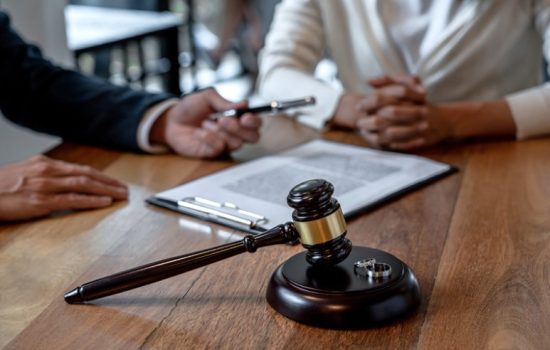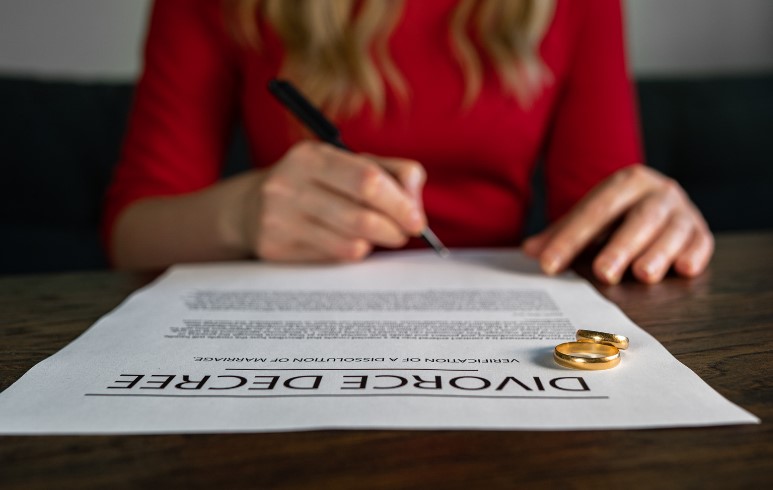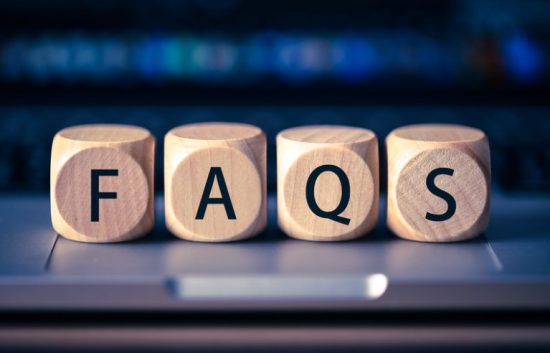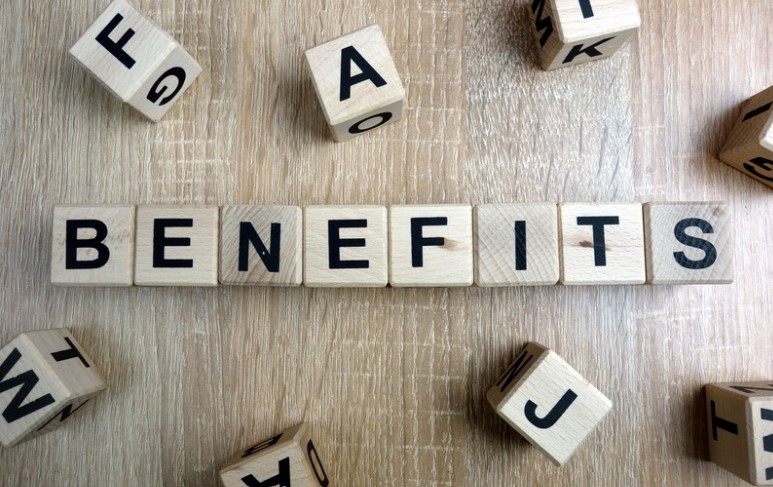Are you going through a divorce in Alberta? Dealing with the legalities and paperwork can be overwhelming. But don’t worry, we’re here to help! One important document you’ll need is your Alberta Divorce Certificate. This final piece of paper not only proves that your divorce has been finalized, but it also holds crucial information about your marriage and court proceedings. In this blog post, we’ll guide you on how to obtain your Alberta Divorce Certificate hassle-free. So let’s dive right in and get you one step closer to moving on with your life!
What is a Divorce Certificate?

Divorce may be an emotionally taxing and complicated process. But once everything is settled, you will receive a document that holds significant importance – your Divorce Certificate. This final piece of paper serves as proof that your divorce proceedings have been successfully finalized.
So, what exactly does your Divorce Certificate include? Well, it contains crucial information such as the court file number, which helps identify and locate your divorce case within the judicial system. It also mentions the location of the court where your divorce was granted.
Your Divorce Certificate may seem like just another piece of paperwork at first glance but obtaining one is essential for various purposes down the line. From immigration applications to banking procedures and even remarriage licenses – having a certified copy readily available will save you time and effort in proving that you are legally divorced.
Why Do I Need A Certified Copy Of My Divorce Certificate?
A certified copy of your Divorce Certificate is essential to provide proof of your divorce. There are numerous situations where you may need to submit a certified copy, including for immigration purposes, banking matters, pension or income splitting, applying for marriage licenses, and when planning to remarry.
It’s important to note that a Divorce Judgment alone does not serve as sufficient evidence that your divorce was granted. In Alberta, once the court grants your Divorce Judgment, you must wait for 31 days before obtaining your official Divorce Certificate. Unless there is an appeal filed by your ex-partner during this period, your divorce will typically become effective on the 31st day after receiving the judgment.
To obtain a certified copy of your Divorce Certificate in Alberta, you have two options: either request it from your family law lawyer or submit an application online through the designated platform.
By having a certified copy of your Divorce Certificate in hand, you’ll be able to confidently navigate various legal processes and applications that require proof of marital status.
How to Get an Alberta Divorce Certificate?

Filing for divorce in Alberta is the first step towards obtaining your Divorce Certificate. To initiate the process, you will need to file certain documents with the court. These documents typically include a Statement of Claim for Divorce and a Civil Marriage Certificate.
The next question that arises is where to file for divorce in Alberta. You can file your divorce application at any courthouse in Alberta, as long as you or your spouse have resided in the province for at least one year before filing.
When it comes to the cost of filing for divorce, it’s essential to be aware of the fees involved. The Court of Queen’s Bench determines these fees and they may vary over time.
Once your application has been processed and approved by the court, you’ll receive a divorce order. The timeframe for receiving this order varies depending on various factors such as court caseloads and the complexity of issues involved. However, on average, it takes several months to obtain a divorce order in Alberta.
In situations where both parties cannot agree on all terms of their divorce settlement, additional steps may be required such as attending mediation or going through a trial. This can significantly prolong the process and delay obtaining a final divorce order.
After receiving your divorce order, there is still one more step left – applying for your Divorce Certificate. You can apply online or by mail directly from the Service Alberta Vital Statistics office. The current fee for requesting a certified copy of your Divorce Certificate is CAD 40.
Where to Get a Divorce Certificate in Alberta?
Once your divorce is finalized, you may be wondering where to obtain a certified copy of your Divorce Certificate in Alberta. Fortunately, the process is quite straightforward.
To get a Divorce Certificate in Alberta, you can either request it from your family law lawyer or apply online through the official government website. The online application option provides convenience and efficiency for those who prefer handling matters digitally.
If you choose to apply online, simply visit the designated webpage and follow the instructions provided. You will need to provide certain information such as your court file number, location of the court where the divorce was granted, full legal names of both parties involved in the divorce, date of marriage, and date of divorce.
It’s important to note that there is a fee associated with obtaining a Divorce Certificate in Alberta. Currently, the cost of requesting a divorce certificate is CAD 40. This fee helps cover administrative expenses related to processing and issuing the certificate.
Once you have submitted your application and paid the applicable fee, your request will be processed by the relevant authorities. The processing time typically takes up to 10 business days excluding mailing time.
Cost of Getting a Divorce Certificate in Alberta
When filing for a divorce in Alberta, it’s important to be aware of the specific fees involved. These fees are determined by the Court of Queen’s Bench and can vary over time.
For those who are filing for divorce without children, the fee is CAD 260. However, if you have children and need to file for divorce, the fee increases to CAD 360. It’s essential to consider these costs when budgeting for your divorce proceedings.
Additionally, there is a fee of CAD 40 for requesting a divorce certificate. This document is crucial as it serves as proof that your divorce has been finalized.
In addition to these fees, there may be additional costs related to serving the divorce documents to your spouse or hiring a process server. These expenses should also be taken into account when planning for your divorce process.
How Long Does it Take to Get a Divorce Certificate in Alberta?

Processing time for obtaining a divorce certificate in Alberta can vary, but generally, it may take up to 10 business days excluding time for mailing. It’s important to note that you won’t be able to obtain your divorce certificate until 31 days after the Judgment is granted. This waiting period allows for any potential appeals or objections from your ex-spouse.
So, when applying for a divorce certificate, make sure not to submit your request before the 31-day allotment. Waiting patiently ensures that all legal processes are completed and gives ample time for any necessary administrative tasks.
During this waiting period, it’s helpful to gather all the required documents and information needed for your application. This includes details such as court file number, location of the court where the divorce was granted, full legal names of both parties involved in the divorce, date of marriage, and date of divorce.
By following these guidelines and allowing sufficient time for processing, you can expect to receive your Alberta Divorce Certificate without delays or complications.
Conclusion
Obtaining your Alberta Divorce Certificate is an important step in finalizing your divorce and proving its validity. Whether you need it for immigration purposes, financial matters, or remarriage, having a certified copy of your Divorce Certificate is crucial.
Navigating divorce proceedings can be challenging and emotionally draining. But by understanding how to obtain your Alberta Divorce Certificate and taking the necessary steps, you can ensure that everything is properly documented and legally recognized.
In conclusion, getting an Alberta Divorce Certificate doesn’t have to be complicated. By following the guidelines outlined above and seeking assistance when needed, you’ll soon have this essential document in hand – ready to take on new beginnings with confidence!
FAQs – How Do I Get an Alberta Divorce Certificate?
1. Can you look up divorce records in Canada?
To obtain the information, you must get in touch with the court that handled the divorce application. If you are unable to recall which court handled your divorce application, the Registry might be able to provide you with the court’s address. You can also receive a reference number from them.
2. How many years do you have to be separated to be legally divorced in Canada?
In Canada, a year of uninterrupted separation is necessary before filing for divorce. This regulation only deviates if adultery or cruelty is used as the basis for your divorce.
3. How can I check my divorce status online in Canada?
You can check your divorce status online in Canada by contacting the Central Registry of Divorce Proceedings (CRDP). The CRDP is a government agency that maintains records of all divorces granted in Canada.
To check your divorce status, you can either:
- Call the CRDP at 1-866-993-9273.
- Complete a Search Request Form and mail it to the CRDP.
- The Search Request Form can be found on the CRDP website.
4. How do I know if I am divorced?
There are a few ways to know if you are divorced. One way is to check your divorce status with the CRDP. Another way is to look at your divorce order. Your divorce order is the document that was issued by the court when your divorce was granted. It will state the date of your divorce and the terms of your divorce.
If you do not have your divorce order, you can contact the court where your divorce was granted. The court will be able to provide you with a copy of your divorce order.
You can also check your marital status with the Canada Revenue Agency (CRA). The CRA will have a record of your marital status on your tax returns. If you are still unsure of your marital status, you can consult with a lawyer.











